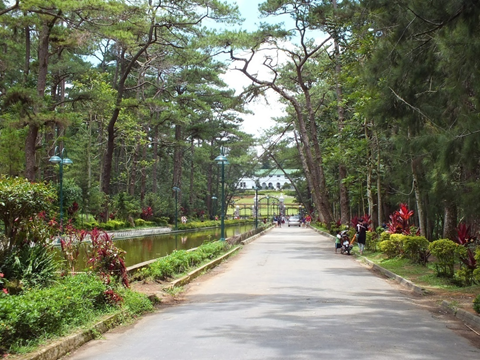
MANILA – Temperature in Baguio City on Tuesday morning dropped to a record low of 10.8 degrees Celsius for this year, according to the Philippine Atmospheric, Geophysical and Astronomical Services Administration (PAGASA).
In an interview, PAGASA weather forecaster Lori Dela Cruz said the temperature in the country’s, summer capital was recorded at 10.8 degrees Celsius at 5:00 a.m. Tuesday.
This was the lowest for this month as compared to Monday’s temperature of 11.5 degrees Celsius.
Dela Cruz explained that strong winds of the northeast monsoon (amihan) contributed to the dip in temperature reading, adding that cold weather is still expected to prevail in most parts of Luzon including Metro Manila until mid-February.
According to PAGASA’s climatological record, Baguio’s coldest temperature ever recorded was at 6.3 degrees on January 18, 1961.
Meanwhile, Dela Cruz said at 5:00 a.m. on Tuesday,the temperature in Metro Manila was recorded at 23.3 degrees.
Metro Manila’s temperature readings are being recorded daily in the vicinity of the PAGASA Science Garden in Diliman, Quezon City between 5:00 a.m. and 6:00 a.m.
Dela Cruz said that the lowest temperature recorded in Metro Manila for this year at 20 degrees Celsius on January 6.
She noted during the amihan season, the lowest temperature in Metro Manila was recorded on December 29, 2015 at 19.6 degrees Celsius.
PAGASA said the all-time lowest temperature recorded in Metro Manila was at 14.9 degrees Celsius on March 1,1963.
The northeast monsoon or seasonal winds from the northeast is the cold air from China that starts blowing into the country every mid-October. It usually peaks from early January to mid-February.
She said so far, the effect of northeast monsoon, which usually peaks from early January to mid-February, concentrates in northern Luzon but it will also bring cold mornings in some parts of Luzon including Metro Manila.
However, she noted that the northeast monsoon is expected to end in February due to El Niño phenomenon.
She said the country will continue to experience cooler days in the coming days.
The northeast monsoon is a mass of cold air from Siberia which brings cool weather to the the country during early November to mid-March.